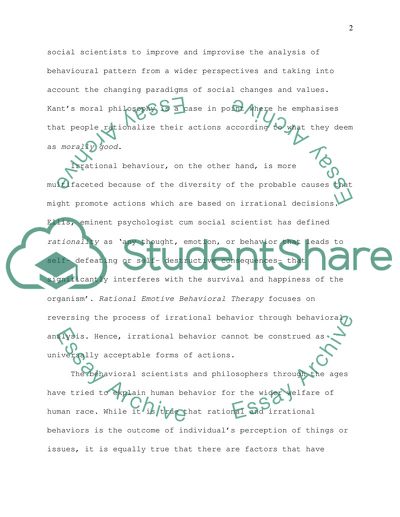Cite this document
(Rationality Vs Irrationality in Human Nature and Holism, Reductionism Assignment - 1, n.d.)
Rationality Vs Irrationality in Human Nature and Holism, Reductionism Assignment - 1. Retrieved from https://studentshare.org/psychology/1719412-psychology
Rationality Vs Irrationality in Human Nature and Holism, Reductionism Assignment - 1. Retrieved from https://studentshare.org/psychology/1719412-psychology
(Rationality Vs Irrationality in Human Nature and Holism, Reductionism Assignment - 1)
Rationality Vs Irrationality in Human Nature and Holism, Reductionism Assignment - 1. https://studentshare.org/psychology/1719412-psychology.
Rationality Vs Irrationality in Human Nature and Holism, Reductionism Assignment - 1. https://studentshare.org/psychology/1719412-psychology.
“Rationality Vs Irrationality in Human Nature and Holism, Reductionism Assignment - 1”, n.d. https://studentshare.org/psychology/1719412-psychology.


